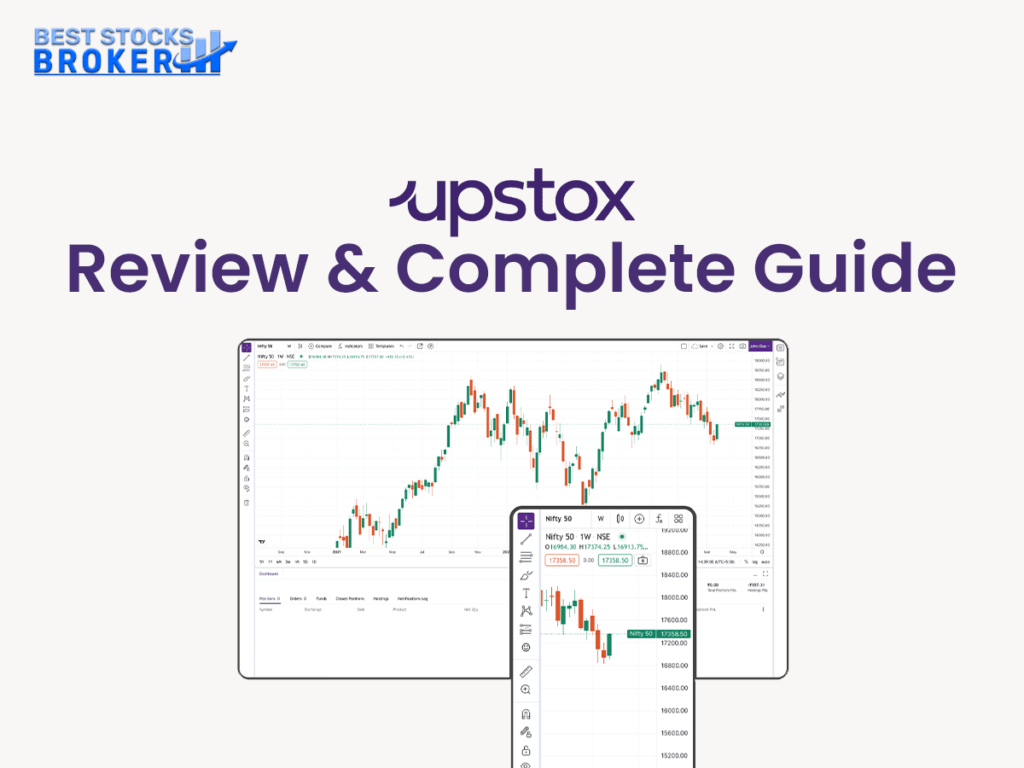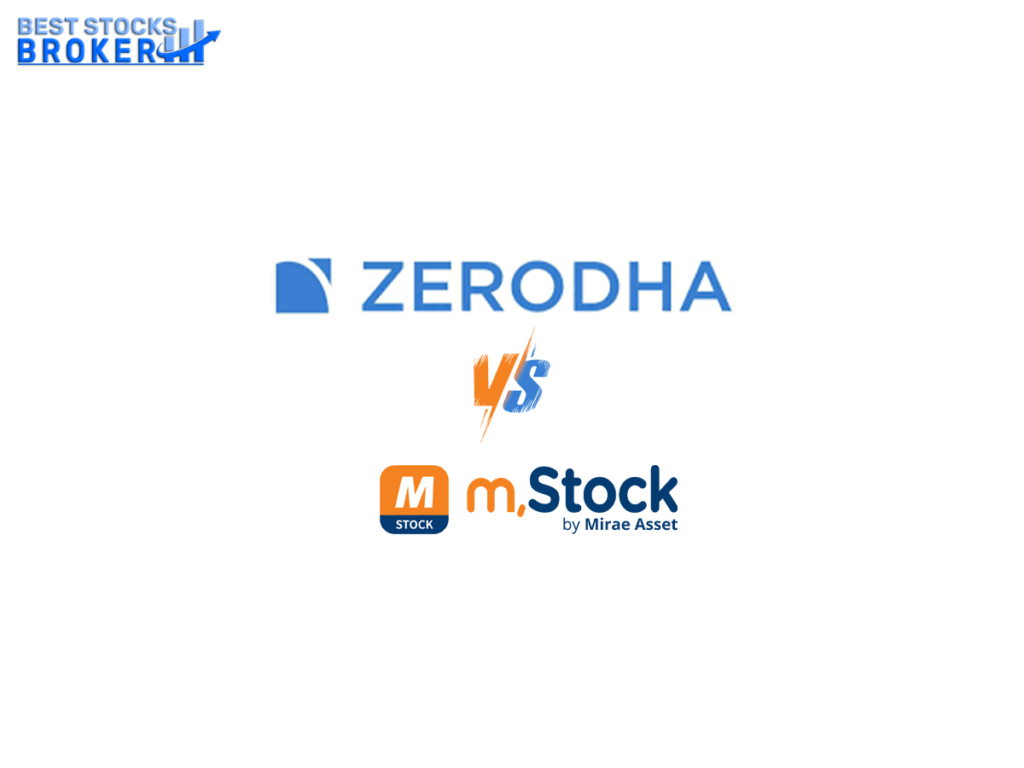Share market investing can seem daunting to many. To make the procedure easier, you can seek help from a stock broker review. A stockbroker is someone who acts as an intermediary between buyers and sellers. They are a financial market professional who works in the securities industry. They buy and sell stocks in the stock market exchange on behalf of an investor. And for providing this service, they will charge you a commission or a fee. Every stockbroker in India must be a member of a stock exchange and registered with SEBI. Stockbrokers publish their registration information on their websites and even on official documents. Let’s check out more information on what stockbrokers do-

- The primary role of a broker is to execute the stock market transactions on clients’ behalf.
- They also provide stock recommendations and tips to their clients.
- They also serve as a record keeper, keeping track of all transactions, statements, etc.
- Brokers also help their clients in managing their portfolios and provide them with customized plans.
- Stockbrokers also help their clients be updated by providing them with the latest news and trends.
- Stockbrokers keep their clients informed of any new investment opportunities in the stock market and assist in changing investing strategies based on market conditions.
Table of Contents
Why do you require a Stock broker review?
If you are new to investing, you should be aware that stock market investing involves some level of risk. You need to do market monitoring and should know the basics of it. And for that, you may find a stockbroker useful for you because they help you to trade with the maximum profits and minimum amount of risk.
They also provide you with research materials, stock tips and recommendations, the latest news and trends and various other tools to increase your chances of success in the stock market. Also, to begin a transaction in the stock market, you must first open a demat and trading account. You will need to get in touch with a stock broker for this. You just need to make sure that the broker you are choosing should be registered with the Securities and Exchange Board of India (SEBI).
Types of Stockbrokers
There are mainly two kinds of stockbrokers-
Full Time Broker
They are also known as traditional brokers. Full-service brokers provide a wide array of products and services to their customers. They provide various services like investment services, advisory services, trading products, retirement planning, portfolio management services, tax planning, etc. Such brokers undergo intense education and examinations to obtain the position and thereby possess in-depth knowledge of the stock market. For providing this kind of vast service they charge you a hefty commission.
If you’re new to trading, a full-service broker can assist you. They provide personalized investment services as well as customizable advice. Also, they give you a dedicated relationship manager to help you in your trades.
Discount Broker
Discount or online stock brokers are gaining importance due to their low brokerage charges and convenience. These brokers offer no extra services such as market guidance, financial planning, or tax advisory. Furthermore, the trade segments that they offer may be limited. Customers who cannot afford to pay huge sums on fees and commissions prefer discount brokers. This type of broker may be preferred by experienced traders who like to make their own investment decisions and do not want to spend on high brokerage costs. In addition to providing more research tools and trading platforms, discount brokers offer lower commissions, making them a popular choice among active traders and investors.
The table below shows the distinguishing characteristics of full-service brokers and discount brokers-
| Elements | Full-service broker | Discount Broker |
|---|---|---|
| Brokerage Charges | High-brokerage charges as compared to discount brokers | Low brokerage charges |
| Type of customers | Ideal for investors who want personalized services, are regular, committed, and have a large investment volume. | Ideal for investors who do not need any advisory services and is a DIY investor. Also, it is suitable for the one who cannot afford to pay high fees. |
| Services provided | Investment services, advisory services, trading products, retirement planning, portfolio management services, tax planning, etc. | Stocks, mutual funds, F&O, currency and commodities. |
| Customer Support | Excellent customer support and assistance | Stocks, mutual funds, F&O, currency, and commodities. |
| Top broker names | ICICI Direct, HDFC Securities, Kotak Securities, Sharekhan, IIFL Securities, IIFL Securities, etc. | Zerodha, Groww, Upstox, Angel One, 5Paisa, Paytm Money, Fyers, etc. |
| No. of branches | Have various physical branches and franchisees to assist their customers. | They mostly do not have many physical branches. Discount brokers mostly work remotely. |
Considerations When Choosing a Stockbroker
Now that you understand the two types of stock brokers, you may select one that best suits your investment strategy. Here are a few things to consider while selecting the best broker for stock market trading:
- Stockbroker Fees and Commissions: The fees charged by the stockbroker are one of the most crucial elements to consider. High brokerage fees may eat into your profits and a stock broker who charges fewer commissions may not provide an amazing selection of services. As a result, before selecting a broker, examine the brokerage fees and other services. Before choosing a broker, study the terms and conditions print and look for hidden fees.
- Stockbroker background & history: A comprehensive inquiry into the broker’s background and historical performance can provide you with a full and accurate picture. Check how long the broker has been in the business, how reputed they have become, and their client’s feedback and reviews. Knowing the company’s market presence, daily turnover value, various financial categories, and number of currently active clients can be highly helpful.
- Trading Platforms: Learn everything you can about the broker’s trading platform. A solid trading platform will provide you with all of the most recent trade news, a variety of tools, customized watchlist options, a user-friendly interface, quick execution of trades, easy fund transfer, etc. The abundance of features and benefits that come with an online trading platform are key factors to consider when selecting the best stock broker.
- Customer Service/ Support: In the modern era, a broker who provides excellent customer service has a distinct advantage over the competition. A right broker is someone who provides you the quick responses to all your queries or issues through phone, email, and chat support. They should be responsive and capable of meeting the needs of the consumer.
- Investment Products: Select a broker who provides you with a vast option of investment products and services like equity, mutual funds, F&O, commodities, ETFs, IPOs, bonds, currencies, etc. Usually, a full-service broker provides you with all these services under one roof. Some brokers also allow you to invest globally i.e., they give access to foreign stock exchanges.
Final Words:
To summarise, Whether you are a novice or an experienced investor, a stockbroker is a vital element of your investment process. As a result, it is vital to select a stockbroker who matches your investing objectives, trading style, and budget. Before that, you need to be clear with your investment goals, set expectations for communication, be always updated about trends and the latest news, and review your account regularly. Making informed investment decisions and reaching your financial goals can be made easier if you have the right stockbroker to help you. Their expertise, knowledge, and experience can help you make better investment decisions.


